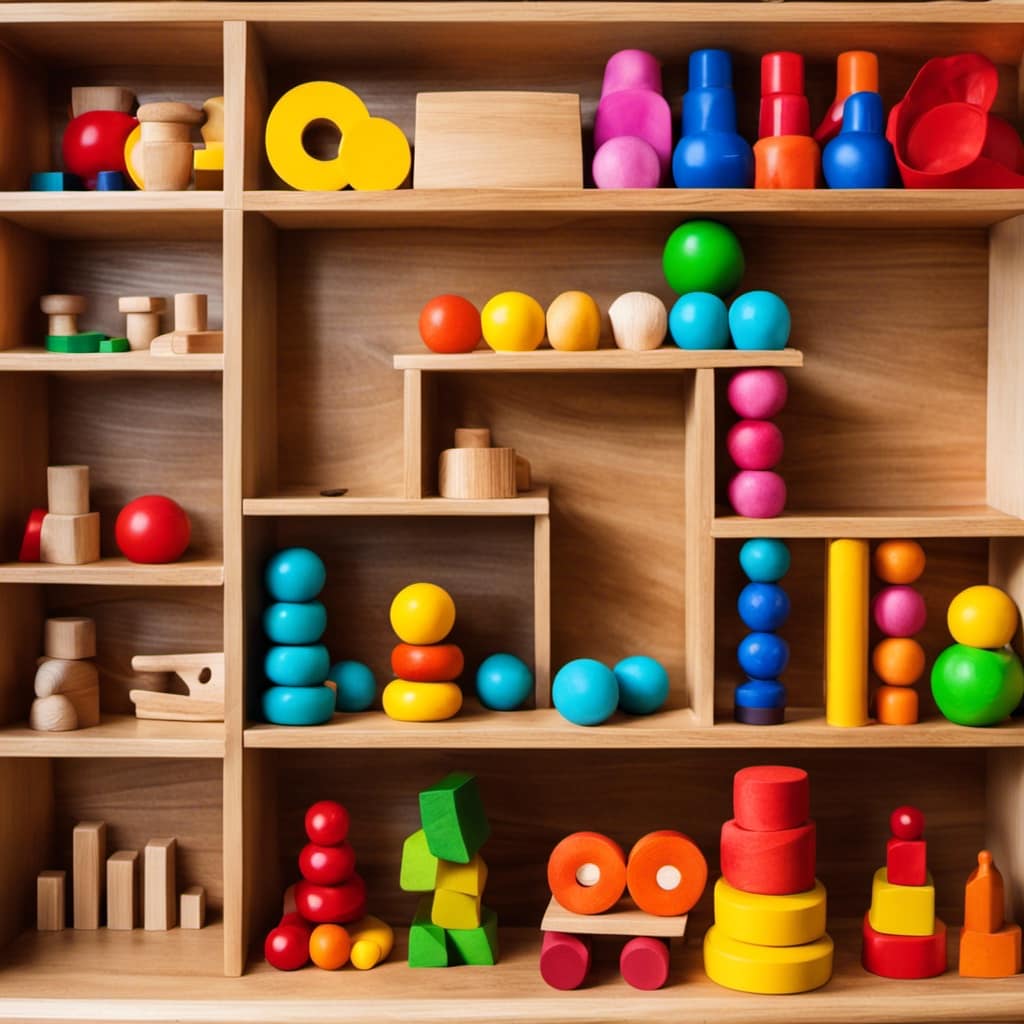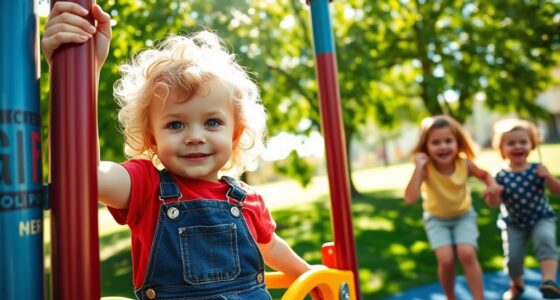As a parent, I constantly think about how our family dynamics affect my child’s development. How I raise my child, their relationship with siblings, and our family structure all play a role in their well-being.
It’s important to delve into these questions and gain a deeper understanding. Authoritative parenting fosters positive social interactions and academic achievement, while authoritarian, permissive, and neglectful styles have negative effects.
Sibling relationships, family structure, and parent-child attachment also play significant roles.
Join me as we explore the fascinating world of family dynamics and their profound impact on child development.
Key Takeaways
- Different parenting styles have varying effects on child development, with authoritative parenting promoting positive social interactions and academic achievement, while authoritarian, permissive, and neglectful parenting styles can hinder development in different ways.
- Sibling relationships can have both positive and negative impacts on child development, with sibling rivalry potentially leading to aggression and reduced self-esteem, but also providing emotional support and helping develop important social skills.
- Family structure, specifically growing up in a two-parent household, is associated with higher academic achievement in children compared to single-parent households. Parenting styles within different family structures can also influence a child’s social skills development.
- The quality of parent-child attachment formed in infancy has long-lasting effects on a child’s ability to form healthy relationships and regulate emotions, with secure attachment promoting positive outcomes and insecure attachment leading to difficulties in emotional regulation and interpersonal relationships.
Parenting Styles and Child Development
I believe that understanding different parenting styles can help me make informed decisions about raising my child.
The role of discipline in child development is crucial. Research shows that the authoritative parenting style, which combines warmth and support with clear expectations and consistent discipline, is associated with positive social interactions and academic achievement.

On the other hand, the authoritarian parenting style, characterized by strict rules and harsh discipline, has negative effects on child development, including difficulties with self-control and lower academic achievement.
Additionally, permissive parenting, where there are few rules and little discipline, can lead to children who have difficulty following rules and struggle with self-control.
The influence of parental expectations on child development is also important. Parents who have high expectations for their children’s behavior and achievements tend to foster their child’s development in a positive way, while low expectations can hinder their progress.
Understanding these different parenting styles and their impact on child development can guide me in creating a nurturing and supportive environment for my child.
Sibling Relationships and Child Development
Growing up with siblings can shape important social skills and emotional well-being. Sibling relationships have a significant impact on child development, and understanding this influence can help parents support their children’s growth. Here are three key points to consider:
-
Impact of sibling rivalry on child development:

-
Sibling rivalry can lead to increased aggression and reduced self-esteem in children.
-
It can also hinder the development of social skills, as children may struggle with sharing and cooperation.
-
Addressing and managing sibling rivalry is important to promote positive sibling relationships and overall well-being.
-
Birth order effects on sibling relationships:
-
Birth order can shape sibling relationships and dynamics.
-
Older siblings often take on a protective and nurturing role, while younger siblings may look up to their older siblings as role models.

-
Birth order can influence sibling interactions, communication styles, and the development of individual personalities.
Understanding the impact of sibling relationships and birth order on child development can help parents create a supportive and nurturing environment for their children. By promoting positive sibling interactions, addressing sibling rivalry, and considering individual needs and personalities, parents can help their children develop important social skills and emotional well-being.
Family Structure and Child Development
Living in a two-parent household can have a positive influence on a child’s academic achievement and social skills. Research has shown that parenting styles play a crucial role in shaping a child’s development.
In two-parent households, the presence of both parents allows for a more balanced and consistent approach to parenting. Authoritative parenting, characterized by warmth, support, and reasonable expectations, has been linked to higher academic achievement and positive social interactions. On the other hand, authoritarian or permissive parenting styles can hinder the development of social skills.
Additionally, sibling relationships also play a role in social skills development. Siblings can provide emotional support, serve as role models, and help children develop important social skills.
Therefore, the combination of a two-parent household and positive parenting styles can greatly contribute to a child’s academic success and social well-being.

Parent-Child Attachment and Child Development
Understanding the role of parent-child attachment is crucial in optimizing my child’s development outcomes. The early experiences we have with our children shape their attachment patterns, which in turn impact their cognitive development.
-
Early experiences: The quality of the parent-child relationship in the first years of life has a profound impact on attachment formation. Consistent and responsive caregiving promotes secure attachment, while inconsistent or neglectful caregiving can lead to insecure attachment.
-
Insecure attachment: Children who have insecure attachment may struggle with emotional regulation and have difficulty forming healthy relationships. Insecure attachment has been linked to lower cognitive development, including problems with attention, memory, and problem-solving skills.
-
Cognitive development: Secure attachment provides a foundation for healthy cognitive development. When children feel secure and supported by their caregivers, they are more likely to explore their environment, engage in learning activities, and develop strong cognitive skills.
Family Resilience and Child Development
Building strong relationships, effective communication, and problem-solving skills in my family helps to foster resilience and positively shape my child’s development. Family resilience plays a crucial role in promoting emotional well-being and overall child development.
When families have strong bonds and open lines of communication, they create a supportive environment that helps children navigate challenges and develop important coping skills. Effective problem-solving skills teach children how to overcome obstacles and find solutions, promoting their resilience in the face of adversity.

The Role of Emotional Regulation in Child Development
Experiencing and managing a wide range of emotions is essential for my child’s growth and overall well-being. Emotional regulation techniques play a crucial role in helping children navigate their emotions effectively. Here are three important impacts of emotional dysregulation on child development:
-
Social Skills: When a child struggles with emotional dysregulation, it can hinder their ability to form positive relationships and interact with others. Teaching my child emotional regulation techniques, such as deep breathing or identifying their feelings, can help them develop better social skills.
-
Academic Performance: Emotional dysregulation can negatively impact a child’s ability to concentrate and focus on their studies. By teaching my child strategies to manage their emotions, like taking breaks or using positive self-talk, I can help them perform better academically.
-
Mental Health: Unmanaged emotions can contribute to mental health issues in children. By teaching my child how to regulate their emotions, I can help them build resilience and reduce the risk of developing mental health problems.
The Influence of Parental Involvement on Child Development
Being actively involved in my child’s life and education has a significant influence on their overall growth and well-being. Parental involvement plays a crucial role in a child’s development, impacting various aspects of their lives.
Research has shown that when parents are actively involved in their child’s education, it leads to improved academic performance, higher self-esteem, and enhanced social skills.

Additionally, parental involvement promotes the development of emotional regulation in children. By providing a supportive and nurturing environment, parents can help their children learn how to manage their emotions effectively, cope with stress, and build healthy relationships.
Parents can foster emotional regulation by being attentive, validating their child’s feelings, and teaching them coping strategies.
Ultimately, parental involvement and emotional regulation work hand in hand to support a child’s overall development and well-being.
The Effects of Divorce on Child Development
Divorce has significant effects on my child’s overall growth and well-being, including potential impacts on their academic performance, emotional regulation, and social skills.
The effects of co-parenting on child development:
- Positive co-parenting can provide stability and consistency for the child, minimizing the disruption caused by divorce.
- Effective co-parenting can promote healthy communication, problem-solving, and conflict resolution skills in the child.
- Inconsistent or conflict-ridden co-parenting can lead to emotional distress, decreased academic performance, and difficulties in forming and maintaining relationships.
The role of therapy in mitigating the effects of divorce on child development:
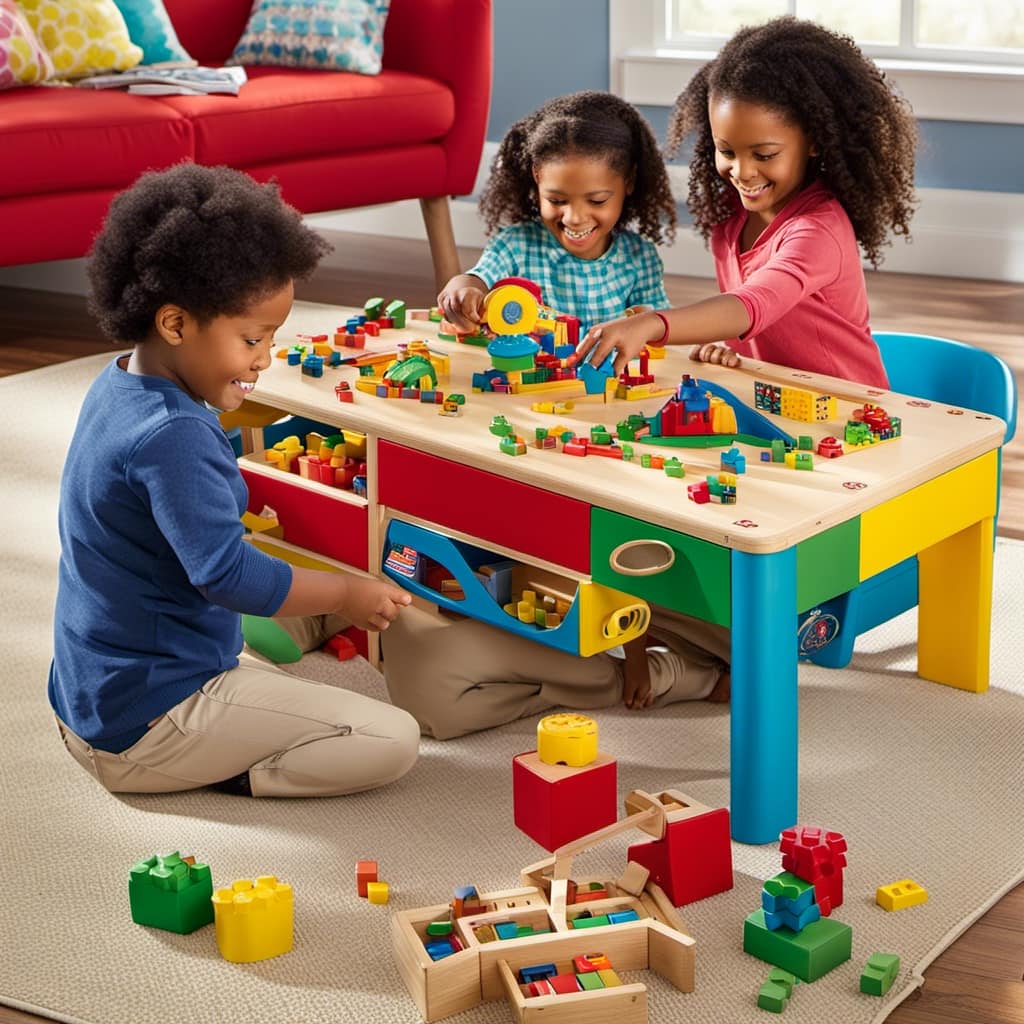
- Therapy can provide a safe space for the child to express their emotions and process the changes and challenges associated with divorce.
- Therapists can help children develop coping strategies and resilience to navigate the changes in their family dynamics.
- Therapy can also support parents in learning effective co-parenting strategies and communication skills, promoting a healthy and supportive environment for the child.
It is important to prioritize the well-being of the child during and after a divorce, and seeking therapy can be a valuable resource in mitigating the negative effects and promoting positive development.
Cultural and Ethnic Influences on Child Development
Growing up in a multicultural household has shaped my perspectives and influenced my personal growth in various ways.
One important aspect of cultural and ethnic influences on child development is cultural identity development. Children raised in multicultural households have the opportunity to explore and embrace different cultural traditions, languages, and values. This can foster a strong sense of cultural identity and pride.
Cross cultural parenting methods also play a significant role. Parents who use cross cultural parenting methods effectively expose their children to diverse perspectives, promote cultural understanding, and encourage respect for different traditions. This can enhance a child’s social and emotional development, as well as their ability to navigate and appreciate diverse communities.
The Impact of Socioeconomic Status on Child Development
Living in a low socioeconomic status environment has presented unique challenges that have shaped my experiences and influenced my personal growth in various ways. The impact of socioeconomic status on child development can be seen in academic achievement and social skills development.
-
Academic Achievement:

-
Limited access to educational resources and quality schools can hinder academic progress.
-
Financial constraints can limit opportunities for enrichment activities and tutoring.
-
High levels of stress and instability can affect concentration and motivation.
-
Social Skills Development:
-
Limited social interactions due to financial constraints can impact the development of social skills.
-
Exposure to violence and crime in low-income neighborhoods can affect socialization.

-
Limited access to extracurricular activities and community resources can hinder the development of teamwork and communication skills.
Overall, the impact of socioeconomic status on child development highlights the importance of addressing inequalities and providing support to children in low-income environments to ensure equal opportunities for success.
The Role of Extended Family in Child Development
Having a strong support system from extended family members has greatly influenced my personal growth and contributed to a positive environment for my child’s development.
The importance of intergenerational relationships in child development cannot be overstated. Extended family members, such as grandparents, aunts, and uncles, play a vital role in promoting resilience in children.
They provide a sense of belonging, emotional support, and guidance, which helps children navigate life’s challenges. Research shows that children who have positive relationships with their extended family members exhibit higher levels of self-esteem, social competence, and overall well-being.
The role of extended family support in promoting resilience in children is crucial, as it strengthens their sense of identity, fosters a sense of belonging, and provides additional sources of love and care.
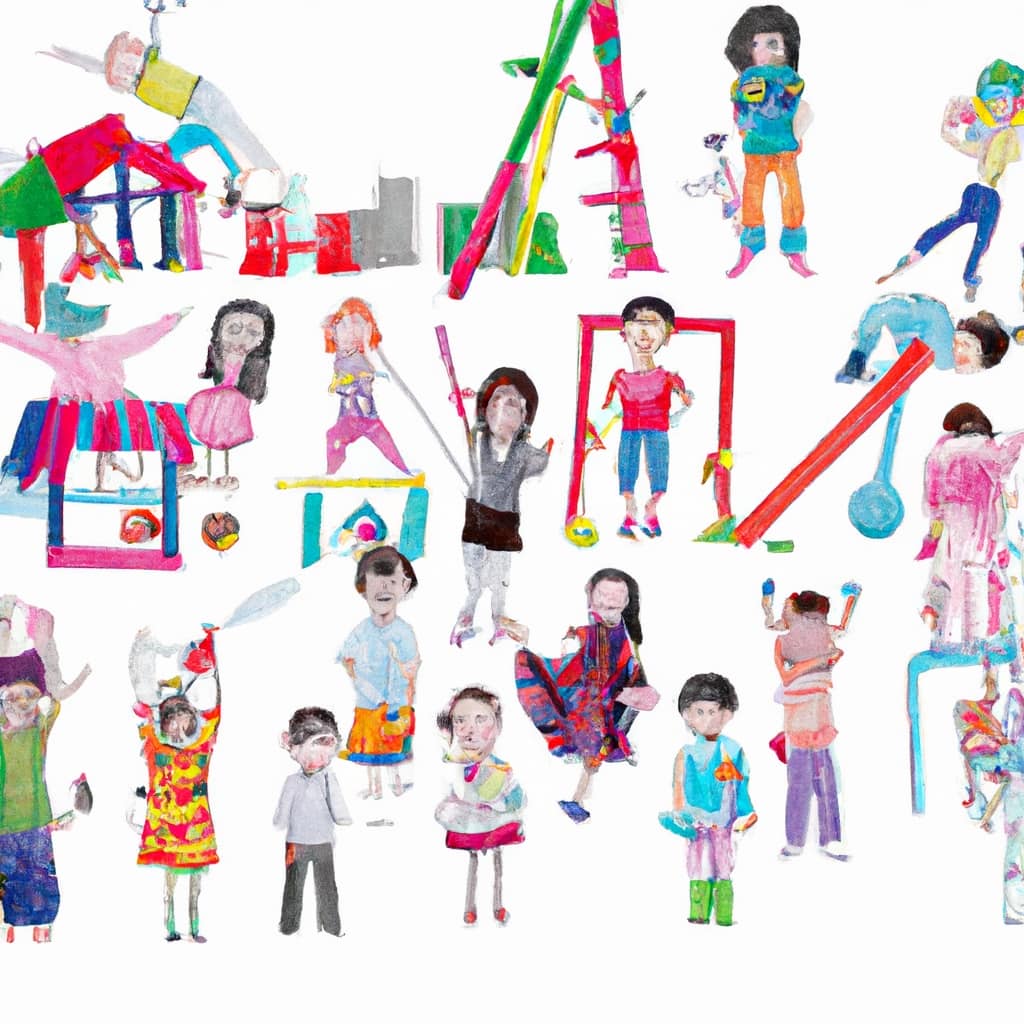
These intergenerational relationships contribute to a nurturing and supportive environment that enhances a child’s development.
Frequently Asked Questions
How Do Different Parenting Styles Impact a Child’s Emotional Regulation?
Different parenting styles can have a significant impact on a child’s emotional regulation. Role modeling in emotional regulation by authoritative parents can promote healthy regulation, while inconsistent parenting can disrupt emotional regulation abilities.
What Are the Long-Term Effects of Sibling Rivalry on a Child’s Social Skills?
Sibling rivalry can have long-term effects on a child’s social skills development. It can lead to increased aggression, lower self-esteem, and poorer social skills. Understanding and addressing sibling rivalry is crucial for promoting healthy social development in children.
How Does the Emotional Attachment Between a Parent and Child Affect the Child’s Ability to Form Healthy Relationships?
The emotional bond between a parent and child greatly impacts the child’s ability to form healthy relationships. Attachment styles, such as secure or insecure, can have long-lasting effects on emotional regulation and interpersonal connections throughout life.
How Does Family Resilience Contribute to a Child’s Overall Well-Being and Development?
Family resilience is crucial for a child’s well-being and development. It helps them cope with stress and adversity, fostering a supportive environment. Strong relationships, effective communication, and problem-solving skills are key in building family resilience.
The structure of a family, whether single-parent or two-parent, can impact a child’s social skills development. For example, divorce may influence social skills, while blended families can have varying effects on social development.
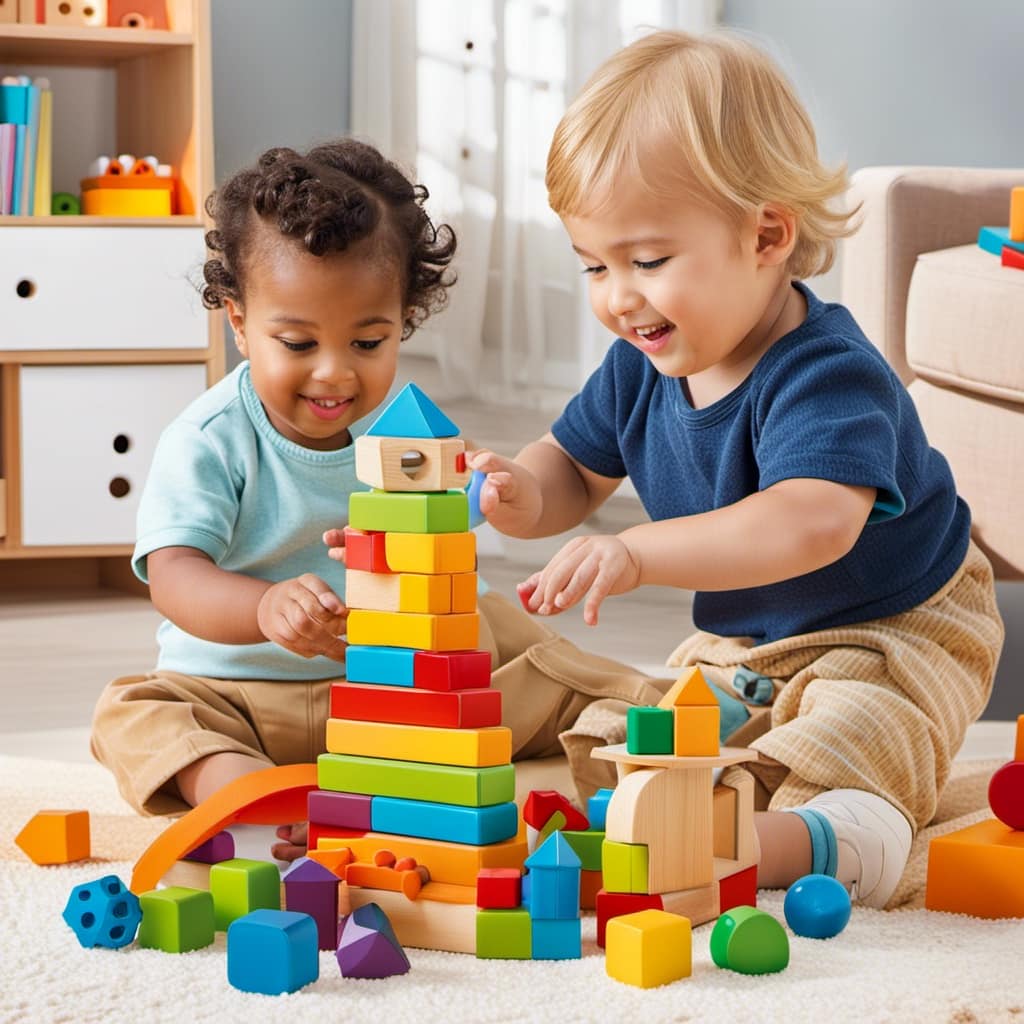
Conclusion
In conclusion, understanding the impact of family dynamics on child development is essential for parents and caregivers.
The various aspects discussed in this article, such as parenting styles, sibling relationships, family structure, parent-child attachment, and family resilience, all play a crucial role in shaping a child’s well-being.
It is important to recognize that our actions and behaviors as parents have a profound effect on our children’s growth and development. As the saying goes, ‘Actions speak louder than words.’
By actively engaging in positive parenting practices, fostering healthy sibling relationships, creating a supportive family structure, forming secure parent-child attachments, and building family resilience, we can provide our children with a strong foundation for their future success and happiness.

